
Name: Joshua
Email:
Posts by Joshua:
The SFC 2013 Trick-or-Treat with Joshua: Five Games to Play With The Lights Off
October 25th, 2013I’m baaaaack!
To me, the point of Halloween is to remind myself that I’m not immortal. How do I do that? By taking my three kids trick-or-treating in the freezing rain? While that helps, I also play video games. Not just any games, mind you; but horror games, suspense games and games that make me sweat in the dark. The following is a list of some I’ve played that really put me on the edge of my seat.
5. Call of Cthulhu: Dark Corners of the Earth
OK, this is a true horror game. It’s an FPS (First Person Shooter) that’s not a shooter at all- it’s more like a first person try-and-hide-to-stay-alive. There’s no health bar, no “sanity” bar; only the labored breathing of the protagonist to tell you how close you are to restarting the area. You get weapons, but they do little to stop the baddies who will just roll over you like a relentless ocean tide. The most intensive gaming I’ve ever experienced took place in this game, running from room to room in a dilapidated hotel, unarmed, trying to escape abduction by a small army of screaming fishmen.
4. Amnesia: Dark Descent
If Call of Cthulhu makes me feel weak, Amnesia makes me feel utterly helpless. There are no weapons. Your only resource is to hide wherever you can in a creepy castle, locking doors and stashing yourself in cupboards. The best part of this game is the visual and auditory suggestion…you hardly see the monsters because, if you do, it’s already too late. You mostly hear them scuttling by while looking at the rendered inside of an armoire, stomping their feet and gasping their pitiless moans…
3. Dead Space
Not actually an FPS, this title takes a turn away from the helpless hero by allowing the player to actually (and successfully) attack oncoming hordes of monsters, albeit with makeshift weaponry. What makes this game frightening is the atmosphere: Derelict spacecraft? Check. Moody music and sounds? Check. Visceral monsters? Double check.
2. Slenderman
Elevated to the point of almost becoming a meme, Slenderman is a game akin to Myst, where you wander around looking for clues to solve some overarching mystery. The difference here is you are being followed by a ghostly, faceless figure who, if you stare at him, will end your game in a loud, sudden blare of static. And you can hear him coming. Every second, you can hear him coming.
1. Bioshock
With the lights on, Bioshock is fun. With the lights out, it scares the pants off of me. Everything about this setting is creepy: lost underwater, surrounded by insanely murderous and disfigured people (yes, not monsters, people!), and even though I can sling lightning bolts and wield a sub machine gun, I still feel like I can do little to stop them from coming, short of satiating their bloodlust. If any experience can make me jump, it’s Bioshock.
Post in the comments, let me know what your favorite horror/suspense games are! And more importantly, have a Happy Halloween!
Review – Mass Effect 2
March 5th, 2012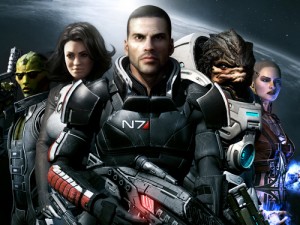 Tomorrow, Mass Effect 3 will be released, but before that I review the phenomenal second game in the series.
Tomorrow, Mass Effect 3 will be released, but before that I review the phenomenal second game in the series.
Mass Effect was a great game with a deeply involving story, but it had tragic gameplay flaws that made replays a chore. Its sequel overcomes those pitfalls, making it one of the greatest Electronic Role Playing experiences ever made. The story (kind of) picks up where Mass Effect left off, with Commander Shepard pursuing the remaining Geth across the galaxy. This is short lived, however, as the intro sequence sees the death of a character that, if you played the first game, you’ve already invested 20 plus hours with.
Thankfully, the developer Bioware doesn’t pull any punches when it comes to story, and soon the player is faced with a character generation screen with which to remake Shepard again, resurrected by a pro-human organization known as Cerberus. The mission: stop a mysterious race known as “Collectors” from abducting entire human colonies. Creating a new Shepard is a breeze whether you import your save from the previous title or not. If you did, you are treated the integration of many decisions you made during the Geth adventure. If not, a standard story is played out, and you miss some of the satisfaction of seeing your influence on the galaxy.
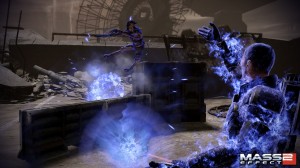 The revamp of character classes add much to the game; instead of just intermixing a stock set of powers between each class, specific abilities are granted based on your choice. From slowing down time for more accurate shots, or engaging a temporary cloaking field, to transporting across the room to fire at an enemy point-blank, a gamer needs to play through Mass Effect 2 multiple times to experience it all.
The revamp of character classes add much to the game; instead of just intermixing a stock set of powers between each class, specific abilities are granted based on your choice. From slowing down time for more accurate shots, or engaging a temporary cloaking field, to transporting across the room to fire at an enemy point-blank, a gamer needs to play through Mass Effect 2 multiple times to experience it all.
The story suffers a bit; the core storyline is a little slim and if no side quests are undertaken, it could take relatively little time to complete. It mainly feels like a set-up for Mass Effect 3, which makes is bit of a reminder of The Empire Strikes Back: you have a really good time and need to play again, but still can’t wait for the finale.
PC versus console is a non-issue, as again mods are not a big part of the Mass Effect universe. If I had purchased my PS3 earlier, I may have gotten Mass Effect 1 and 2 for that instead of my computer.
Ratings:
Graphics = 4
Still not the best, but better than the first title, and the color palette is a vast improvement.
Sound = 5
Voice acting is top notch (they even got Michael Dorn, aka Lt. Worf!), and the score is beyond belief. There are major themes for each character, and they are very hardly reused.
Gameplay = 5
Incredible controls and excellent leveling make this title much better than the original. New powers and an easy-to-use menu system increase replay value tenfold. And selective vehicle missions!
Morality = 4
Paragon and renegade options make a return, as do relationships. With the former, you still are saving the galaxy as a goody-goody or a jerk, and the latter can be skipped (but are PG-13 instead of the prior’s PG rating).
Story = 5
Not as involved as Mass Effect, but even with a less-than-enticing main story, side quests (and Loyalty Missions where you gain the trust of your squad) make up for its lack of depth.
Overall Score = 5 “No Library is Complete Without It”
I love this game. I’ve played through about six times already, and I don’t get a lot of time to mess around anymore. It’s truly something to be experienced, even if you don’t want to play the first. I think you could get them both for about $40 total now, though, so you really have no excuse not to have fun anymore.
I’m talking to you, Max.
Review – Mass Effect
February 18th, 2012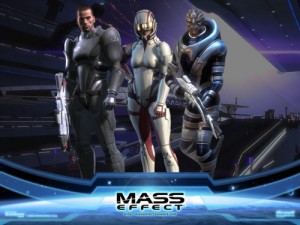 As a prelude to reviewing arguably the most anticipated game of 2012, I take a look at where it all began.
As a prelude to reviewing arguably the most anticipated game of 2012, I take a look at where it all began.
Not many video games have the resonance that the Mass Effect series has, and the first got the ball rolling with an excellent story. As Commander Shepard, the player assumes the task of saving human colonies from the Geth, a race of rougue AI that seem to target colonies on the outskirts of their space. Not long after the first mission, however, it becomes clear that the Geth are nothing more than pawns in an intergalactic siege of immense proportions.
Bioware did an excellent job in providing the player a customizable gaming experience; Shepard’s looks and gender can be adjusted, as well as choosing a personal and military background. There are six classes, each with a mix of Soldier (weaponry), Tech (disabling technology) and Biotic (crowd-control “magic”). From there, players can choose dialogue options that give them “paragon” or “renegade” points, basically interacting as a wholesome person or an unfeeling jerk. There are advantages to both, and while they don’t affect the overall story now, certain paragon or renegade options have repercussions that will branch out into the next two games.
There are romance options, too; a male character can choose to woo Alliance soldier Ashley Williams or the genetically perfect alien Liara T’soni. Women have the option of Alliance biotic Kaiden Alenko or, again, Liara (which is explained as a possibility due to her alien herritage). While interesting in their own right, the romances are not integral to the plot and they can be skipped altogether (though it is a bit tricky), and there is a bit of PG-13 interaction going on if you get that far.
Gameplay is the real drawback to Mass Effect. Both Tech and Biotic powers seem more like add-ons than actual enhancements to the game, and their use can be awkward. Sure, they have their uses, but the game feels more like a shoot-em-up with the added tactic of special moves. Close-quarter combat is a joke, so you have to be careful not to let anyone get too close. And don’t get me started on the vehicle missions…they bring the replayability of Mass Effect down a lot. When I started my replay for this review, I almost stopped playing due to the pain of going through these again.
Again, when faced with console versus PC gaming, there is very little difference between the two. While there is a large modding community for Mass Effect on the PC, the game itself was not designed for modification, making offerings in that venue light. This is truly a game that can be enjoyed on either platform.
Ratings:
Graphics = 4
They’re good, but not great. This game is five years old, after all, and I have to say the color pallette is just not as vivid as it could have been.
Sound = 4
The score and main theme is awesome, I just wish there was more of it. I found myself getting bored with the ambient noise and music simply because I just heard it on the last mission.
Gameplay = 3
With the lackluster Tech and Biotic powers coupled with the dreadful vehicle missions, I found myself tearing my hair out at times.
Morality = 4
Even with Paragon and Renegade options, the main mission is to save the galaxy. The relationship aspect can be skipped, and even if not, it’s pretty tame.
Story = 5
If I could give this a 6, I would. It’s engrossing and adventurous, galaxy-scoping and fun. Doesn’t get any better than that.
Overall Score = 4 “Worth Your Hard-Earned Cash”
I’ve been pretty hard on the gameplay for Mass Effect, but don’t let that deter you. It tuly is an excellent game, and worth it even if you don’t decide to play the next two. After playing, though, you’re going to want to know the fate of Commander Shepard and his crew. I guarantee it.
Review – The Elder Scrolls V: Skyrim
December 29th, 2011The Elder Scrolls V: Skyrim makes its predecessors look almost amateurishness in their attempt at an Open World RPG.
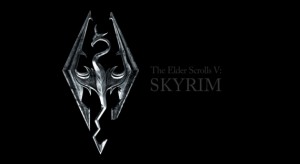 Being an avid gamer and a lover of RPGs, I’ve spent many a day strolling through the open-world designs of both Bethesda Gamework’s previous Elder Scrolls titles: namely Morrowingd and Oblivion. Those worlds were rife with quests and graphics that could keep me occupied for hours. Alas, the bliss was fleeting as I found the obtuse and backwards leveling system in both games exceedingly obnoxious. I couldn’t understand the thing, much less have fun with it, and no matter what I dd I ended up with a nerfed (or incredibly underpowered) hero by mid-game. It wasn’t until much later, after many modifications had been created by a dedicated fan base, that I was able to play Oblivion with any sense of entertainment.
Being an avid gamer and a lover of RPGs, I’ve spent many a day strolling through the open-world designs of both Bethesda Gamework’s previous Elder Scrolls titles: namely Morrowingd and Oblivion. Those worlds were rife with quests and graphics that could keep me occupied for hours. Alas, the bliss was fleeting as I found the obtuse and backwards leveling system in both games exceedingly obnoxious. I couldn’t understand the thing, much less have fun with it, and no matter what I dd I ended up with a nerfed (or incredibly underpowered) hero by mid-game. It wasn’t until much later, after many modifications had been created by a dedicated fan base, that I was able to play Oblivion with any sense of entertainment.
Skyrim makes Oblivion look like it was made by monkeys on typewriters. OK, maybe that’s a little harsh, because other than the backwards leveling system, Oblivion was an excellent and immersive RPG. It had an intriguing story line, wonderful graphics, and intriguing quests that made it possible to feel like you were (in some small way) affecting the gaming world. Skyrim takes these good points to a whole new level, involving the player in a civil war and an attempt to stop the apocalypse.
By making a more fluid level system, gamers can simply play the game the way they wish without having to worry about what skills to level and how to get a character that won’t be severely hindered in higher levels. If you want to me a magic user, use magic to heal and destroy your enemies. If you want to be an armorer, collect material from various ore veins across the land and use a forge in town to craft new armor. The higher your skills, the more options you have during leveling to gain special perks that improve your character.
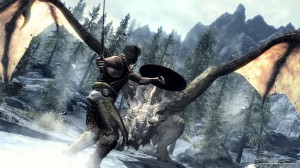 Even with its good points, there are several glaring flaws with Skyrim. Graphics are intense, and those playing on a PC might have some difficulty playing at higher resolutions and quality levels. I have a decent gaming rig, and my machine had trouble with frequent slowdowns at random intervals. That brings up another point; Bethesda studios is notorious for releasing games with bugs, and even the console versions have issues with game crashing and freezing. I would expect that the studio will be releasing free patches to the XBox 360 and PS3 versions before long (if they haven’t already).
Even with its good points, there are several glaring flaws with Skyrim. Graphics are intense, and those playing on a PC might have some difficulty playing at higher resolutions and quality levels. I have a decent gaming rig, and my machine had trouble with frequent slowdowns at random intervals. That brings up another point; Bethesda studios is notorious for releasing games with bugs, and even the console versions have issues with game crashing and freezing. I would expect that the studio will be releasing free patches to the XBox 360 and PS3 versions before long (if they haven’t already).
This is a difficult game to score, mainly because of the console/PC differences. One of the factors I love about PC gaming is that dedicated fans often release mods (or modifications) for games, giving them longevity and even fixing problems that developers have either ignored or felt were not worth the time to repair. Console gamers, on the other hand, have the advantage of a dedicated and stable platform on which to play their games.
Ratings:
Graphics = 5
These are mind-blowing visuals that really take you into the world of Skyrim. Even on a PC with lowered intensity, they remain impressive.
Sound = 5
If I could give the musical score a six, I would. It’s a dynamic background track that accentuates the experience. There are also a plethora of voice actors that make NPC interaction a joy rather than an ear-aching chore.
Gameplay = 4
I can really only speak for the PC version, and it seems like the controls were designed primarily for a gamepad like the 360, and modified for computer use. That made play a little tough, but I’m sure my experience would have been different on a console.
Morality = 4
Sometimes the player is forced into performing immoral acts that seem like murder or theft, but the overarching story is about self-sacrifice, as well as deciding which side to serve on during the civil war. Be warned, though, with the amount of blood in this game it is NOT for children.
Story = 4
The main story is excellent, but some of the side stories and quests seem forced and similar to “fetch me this” journeys across a huge landscape.
Overall Score = 4 “Worth Your Hard-Earned Cash”
If you have the cash to spend, get The Elder Scrolls V: Skyrim. It’s a great game, highly entertaining, and visually striking. If you like tweaking with your games and have the knowledge to do so, get the PC version. If you just want to sit back and relax, buy it or your favorite console. You’ll have a good time and be playing a game for months to come. And you fight dragons. Big ones.
The Sci-Fi Christian Stocking Stuffer Day 5
December 21st, 2011
A trek through the Winter Wonderland of MMORPGs with Joshua!
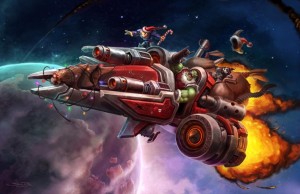
Christmas is a time for families, for celebrating the joys of being alive, and for remembering the birth of our Savior together. Observed the world over by Christians and non-Christians alike, it’s no wonder that this holiday has infiltrated the most community-oriented experience ever known: the Massive Multi-player Online Role Playing Game. I could think of no better way to look at Christmas than through the lens of gamers all over the world.
World of Warcraft
Arguably (and rightly so) the most popular MMORPG of all time, World of Warcraft (or WOW) offers gamers the opportunity to play as one of the two factions in the land of Azeroth; the Alliance or the Horde. Blizzard, the game’s designer, works hard to keep both factions balanced, making play entertaining for either side.
Players of WOW have a host of quests and programmer-offered presents culminating in the multi-week-long celebration called The Feast of Winter Veil. There are a variety of events that players can participate in, most with a winter or Christmas theme, including the ride of Greatfather Winter, who takes the form of a jolly dwarf or insane orc, depending on the kind of character the player is. Interestingly, the WOW programmers have emphasized the commercialized nature of the holiday, perhaps reflecting the real-life nature of the season.
A true Sci-Fi RPG, Eve Online is a game taking place in a galaxy with over 7,500 star systems. With different races and factions within each species, players have a lot of opportunity to carve out a niche for themselves in the gaming world. Skill upgrading takes place in Real Time, or in the time span of the real world even when not logged on to servers, making it something that casual players have an opportunity to excel at; it removes the relentless “XP grind” that requires hours of constant gameplay to raise character levels.
Eve Online doesn’t have a particular server-hosted holiday celebration, yet they do offer a sereis of holiday gifts; in prior years players recieved a single offering from the programmers, but this year they are offered a choice . A multitude of message boards have sprouted up to discuss their individual effectiveness, and the pros and cons of each choice. I’m not sure if there are player-based celebrations as well, but I’m sure a few guilds have their own way to commemorate the holiday season.
The Everquest name has been the longest running franchise for MMORPGs, and the sequel continues the trend with updated graphics and gameplay. Occupying the world of Norrath, players can pick from a variety of races and venture forth in a primarally Player-versus-Environment (or basically player versus programmer) experience. Everquest is very guild-oriented, offering bonuses to those involved in organized groupings of other players.
For the Winter Season, the game opens up Frostfell Wonderland Village, offering gifts and the like to gamers. there are a variety of season-specific quests that players can partake in for a limited time, including ones new to this year. The guild-syle play rewards completing these quests with friends, making it a true collaboration between compatriots.
The common thread between all of these MMORPG celebrations is presents, but that doesn’t mean that these companies have completely commercialized Christmas. The important thing to remember is that loot plays an important role in such games, and the giving nature of the season only helps to promote those feelings of good cheer. Especially in WOW, there is a dramatic comedy about the whole process, making light of the financial aspects to the holiday; observing this only brings an acknowledgement of how commercialized our lives have become, and how dedicated to gift-giving Christmas can be.
Christmas is a time to remember our Savior and celebrate his birth, and I cannot fault major video game studios for not including Jesus in their festivities; there is no Christ in Azeroth. A true celebration of His birth, though, is also bringing people together in friendship. In these games you don’t often see the person controlling the Night Elf or the giant battle cruiser, you just know that they’re a friend, someone you can spend some time with, who is there without being there. MMORPGs give us the opportunity to connect and be together in this Glorious Season, and that is an aspect to Christmas that MMORPGs get right.
Review – Deus Ex: Human Revolution
December 19th, 2011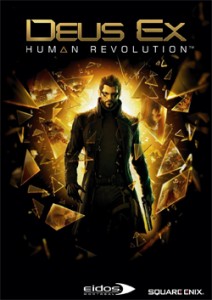 This article takes a look at Deus Ex: Human Revolution. Is it truly revolutionary, or merely the same old thing?
This article takes a look at Deus Ex: Human Revolution. Is it truly revolutionary, or merely the same old thing?
I have a confession to make. I’ve never played Deus Ex all of the way through. Yes, a video game reviewer saying this is like a baker saying he’s never made a chocolate cake, or a mechanic saying he’s never changed a spark plug, but I disagree with all of the hype that surrounds “one of the greatest video games of all time” to begin with. I got bored with it. The story was intriguing, but the player progression was kind of a pain, and I basically lost interest. So that’s where I’m coming from with this review of the game’s prequel.
To be quite honest, I have to give this game some pretty high praise: it made me want to go back and try Deus Ex again. As a stand-alone game, Human Revolution in and of itself is great. It is a mix between a linear First Person Shooter and a Sandbox game. The plot has linear progression, but each level map is designed to allow the player complete freedom to choose how to progress to its conclusion. Boss fights are featured, something that was not present in the first game (and was seriously lambasted by other critics) but even those offer variety in their execution.
Skill alone doesn’t dictate level progress, as the main character, Adam Jensen, is a cyborg that can unlock certain powers as the game advances. Do you want to be a stealthy character? Choose options like silencing footsteps or advanced radar to sneak around your foes. Rather go in guns blazing? Increase your targeting and armor. The choices allowed to the player are vast, making each replay a chance to try out different technology.
Of course, this is where things get a little off-center. The ability to unlock skills can happen quickly, and by mid-game, Adam Jensen can be super-powered in whichever field the player has geared him. I found myself struggling to decide on which advancements I should unlock simply because all of the stealth-based options were already available. For a game that is supposed to be about choice, I felt limited half-way through. Of course, downloadable content can be added in the future that could remedy this, but alas, a game needs to be judged on its release and not on its future possibilities.
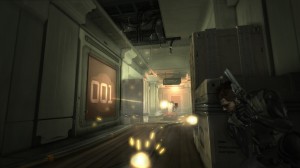 Taking a step away from the free-form gaming of Human Revolution, the true gem of this game is the story. It does a fantastic job at guiding the player through a complex web of plotical and social intrigue as characters themselves struggle with the morality of scientific augmentation of the human body. By the end of the game, the player is wondering to himself if the drastically enhanced Adam Jensen is more human than machine. Interweaving each mission are choices that will alter game progression later down the road as well, making later play-throughs even more enjoyable.
Taking a step away from the free-form gaming of Human Revolution, the true gem of this game is the story. It does a fantastic job at guiding the player through a complex web of plotical and social intrigue as characters themselves struggle with the morality of scientific augmentation of the human body. By the end of the game, the player is wondering to himself if the drastically enhanced Adam Jensen is more human than machine. Interweaving each mission are choices that will alter game progression later down the road as well, making later play-throughs even more enjoyable.
One last thing: I managed to play through the entire game without killing a soul. Not only that, but the game rewarded me for each non-lethal takedown, as they are much more difficult to execute than the running and gunning so common in other shooters. I can’t gripe too much about a mechanic that rewards the player for doing the right thing the hard way.
Ratings:
Graphics = 4
They seemed a little dated, but not so much that it detracted from game play.
Sound = 3
The voice actors were stiff, and the music was somewhat lackluster. I like a tune I’ll be humming long after I’ve shut down my PC, and this didn’t have it.
Gameplay = 5
The game mechanics are well constructed, even with the underwhelming amount of skills, and the ability to choose how to progress through each mission offers excellent free-form play.
Morality = 5
Like I said, I killed no one through the entire game; not only that, but the questions asked within the story are ones that scientists and philosophers ask today. A game that can make me really think and question is definitely special.
Story = 4
It kept me interested, which is more than I can say for its predecessor, but it still had flaws and a “plot twist” you can call after the opening cut scene.
Overall Score = 4 “Worth Your Hard-Earned Cash”
This is definitely a title I would suggest for someone to try. It’s got a good story, excellent morals, and great game mechanics. Even if you aren’t a fan of FPS games, give Deus Ex: Human Revolution a try. I bet you won’t be disappointed.
Morality in the Digital Frontier
November 19th, 2011Not all games delve into morality, and those that do often get it wrong. This author takes a look at how moral decisions are represented in the digital world.
I sat down today to write my review of Deus Ex: Human Revolution, and realized that I had hit a roadblock. My last review of Left Behind 3: Rise of the Antichrist had some issues with its moral tone, and being a religious brand I feel The Sci-Fi Christian needs to take stock of the principles expressed in the items that are reviewed. Human Revolution has some components of morality, both within its storytelling and gameplay, but I felt it was more important to really delve into what I mean when I give games a “Morality” score.
 Websters defines moral as “relating to principles of right and wrong in behavior,” something that, as a popular medium, video games provide excellent ground to explore. Not all games deal into such heady topics, and others do so only slightly. You may have a tough time arguing the moral compass of Super Mario, as he is painted in the vein of the heroic protagonist saving the princess. Perhaps that is why it is viewed as a children’s game; there are no deep philosophical debates within his quest to stop Bowser from overthrowing the Mushroom Kingdom.
Websters defines moral as “relating to principles of right and wrong in behavior,” something that, as a popular medium, video games provide excellent ground to explore. Not all games deal into such heady topics, and others do so only slightly. You may have a tough time arguing the moral compass of Super Mario, as he is painted in the vein of the heroic protagonist saving the princess. Perhaps that is why it is viewed as a children’s game; there are no deep philosophical debates within his quest to stop Bowser from overthrowing the Mushroom Kingdom.
There are two ways a game can instill a moral message into the medium: story, or how the main events of the game are scripted, and mechanics, or how the player interacts with the environment. Obviously there is not much story to Super Mario, and the gameplay offers no moral dilemma other than how to progress through the level; the bad guys are bad, and Mario must bypass them to save Princess Peach. Most platforming games like Mario are similar in that they are light on story and strait-forward on mechanics.
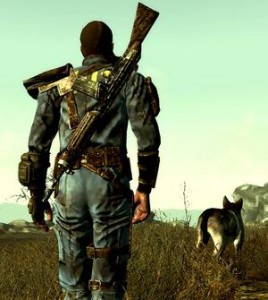
Some games use the mechanics alone to provide a moral experience. Fallout 3 is an excellent example, in that there is a moral aspect to the story that can be influenced by the player, but most decisions occur outside of the main plot. As a sandbox game, the player has freedom to explore and perform quests in any manner they choose, including the main quest line. In fact, a player could make all of the moral choices within the main story and make completely immoral ones in side quests. There may be consiquences to their actions, but few that would affect the story’s progression. Fallout 3 also has a “meter” that keeps track of all of the right and wrong choices through the course of the game, giving you a saintly or demonic status with the NPCs (Non-Player-Characters) in the world. Thus they will react to you differently based upon your choices.
What occurs is not necessarily a story based on morality or choice, but on replayability. Both the “good” and “evil” options are viable ways to proceed, and is inherently tainted by the white and black simplicity of the matter. At some point, the player may make the evil choice simply because he did not do so the first time around. In fact, the story does not matter as taking evil paths will net you similar results, or even beneficial ones that a player may not obtain from making differing choices. Does this make a game immoral? No, but it does make it amoral. By forcing morality, the game takes ethical choices and makes them simplistic or inconsequential.
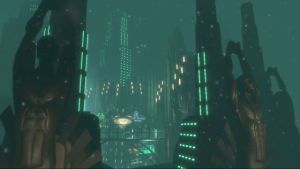 A game that utilizes story as it’s basis to discuss morality takes a different tone, and Bioshock is a perfect examination of ethical dilemmas. Without giving specifics, there are certain points within the game where the player must make a desicion: perform a hurtful act that increase options within the gaming world, or avoid that action and limit those options. While at first this appears to be similar to Fallout 3 as a purely mechanical take on morality, the design of Bioshock facilitates making that choice and reducing the impact of those limitations. The designers incorporated alternate endings for the title that plays upon how those particular choices were made, but in truth the only real moral effect is internal to the gamer.
A game that utilizes story as it’s basis to discuss morality takes a different tone, and Bioshock is a perfect examination of ethical dilemmas. Without giving specifics, there are certain points within the game where the player must make a desicion: perform a hurtful act that increase options within the gaming world, or avoid that action and limit those options. While at first this appears to be similar to Fallout 3 as a purely mechanical take on morality, the design of Bioshock facilitates making that choice and reducing the impact of those limitations. The designers incorporated alternate endings for the title that plays upon how those particular choices were made, but in truth the only real moral effect is internal to the gamer.
In truth that is where the true morality lies. Video games have an opportunity to advance as a medium to be on the level of film, where Transformers: Rise of the Fallen pales in comparison to Citizen Kane. Using morality as a means of engaging the player is an excellent path to such a goal, and through storytelling and mechanics it can be achieved. Which is more effective is beyond the scope of this article; I simply wanted to give you, the reader, an idea of why I see some games as more moral than others. Let me know what you think…are these sound concepts that should even be in a game review? I look forward to your comments!
SFC’s Halloween Tricks and Treats: October 27, 2011
October 27th, 2011To me, Halloween is a classical holiday; not in the spiritual sense of Christmas and Easter, or the familial sense of Thanksgiving, but in that it brings me back to childhood. I’ve always loved a good story, and there’s something to be said about scaring yourself with a well-written tale that evokes a feeling of dread, while at the same time knowing in the back of your mind that all is really well. That’s why I chose these three staples of the macabre as my favorites of the season; if you’re not afraid yet, then Yoda was right. You will be.
John Carpenter’s The Thing
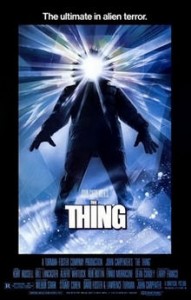 As a general rule, I hate remakes, especially ones that happen when the source material isn’t all that old or bad to begin with. Since rules are made to be broken, it just so happens that one of my favorite movies of all time is a remake of the 1951 cult classic, The Thing from Another World. This film in and of itself is a retelling of a 1938 John Campbell piece called, “Who Goes There?” Although Another World was a decent film in its own right, John Carpenter truly brought the fear of the unknown to life in his 1982 classic. Though a gruesome tale with fantastic special effects that still hold up today, what truly makes this a timeless film goes beyond typical gore. Exploring the concept of trust, The Thing begs the question of who is friend or foe, and that those whom you thought you knew could be someone sinister. Even today, many of the film’s major questions remain unanswered, and its premise is so strong that it even spawned a video game sequel and a film prequel. I end up watching this film at least once a year, and it’s well worth it.
As a general rule, I hate remakes, especially ones that happen when the source material isn’t all that old or bad to begin with. Since rules are made to be broken, it just so happens that one of my favorite movies of all time is a remake of the 1951 cult classic, The Thing from Another World. This film in and of itself is a retelling of a 1938 John Campbell piece called, “Who Goes There?” Although Another World was a decent film in its own right, John Carpenter truly brought the fear of the unknown to life in his 1982 classic. Though a gruesome tale with fantastic special effects that still hold up today, what truly makes this a timeless film goes beyond typical gore. Exploring the concept of trust, The Thing begs the question of who is friend or foe, and that those whom you thought you knew could be someone sinister. Even today, many of the film’s major questions remain unanswered, and its premise is so strong that it even spawned a video game sequel and a film prequel. I end up watching this film at least once a year, and it’s well worth it.
H. P. Lovecraft’s “The Shadow over Innsmouth”
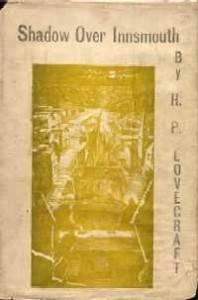 Some Christians have a definitive problem with works by those such as Lovecraft. His stories and poems focus on an atheist worldview, and thus his true horror lies in a lack of God. The insanity that Lovecraft’s narrators often succumb to is due to the hopelessness of a world without God. What could be more terrifying than that? A mythos surrounding his works has created a pantheon of gods of terror and destruction, and “The Shadow over Innsmouth” is no exception. I had a difficult time choosing between this and “The Dunwich Horror,” but “Shadow” is a much more typical, and frightening, Lovecraft. A New England town overrun with cultists, and worse? A scene where the protagonist escapes his pursuers in a mad dash from hotel room to hotel room? Now this is Halloween.
Some Christians have a definitive problem with works by those such as Lovecraft. His stories and poems focus on an atheist worldview, and thus his true horror lies in a lack of God. The insanity that Lovecraft’s narrators often succumb to is due to the hopelessness of a world without God. What could be more terrifying than that? A mythos surrounding his works has created a pantheon of gods of terror and destruction, and “The Shadow over Innsmouth” is no exception. I had a difficult time choosing between this and “The Dunwich Horror,” but “Shadow” is a much more typical, and frightening, Lovecraft. A New England town overrun with cultists, and worse? A scene where the protagonist escapes his pursuers in a mad dash from hotel room to hotel room? Now this is Halloween.
Resident Evil 4
 I couldn’t call myself a gamer without putting a classic such as this in my list. The Resident Evil franchise has been a staple of the survival horror genre for as long as I can remember, but by 2005, the concepts of zombie destruction and the Umbrella Corporation were becoming stale. Capcom livened it up with RE4, with a new plot, new villains, and no zombies (well, sort of). The game relies on mood-setting environments and tense action scenes as well as a limited ammunition supply as you try and protect the president’s daughter. When released for the Wii, the port that I own, it was and largely still is the game to own. Now over six years old, it has withstood the test of time, and remains a favorite of survival horror-ists everywhere.
I couldn’t call myself a gamer without putting a classic such as this in my list. The Resident Evil franchise has been a staple of the survival horror genre for as long as I can remember, but by 2005, the concepts of zombie destruction and the Umbrella Corporation were becoming stale. Capcom livened it up with RE4, with a new plot, new villains, and no zombies (well, sort of). The game relies on mood-setting environments and tense action scenes as well as a limited ammunition supply as you try and protect the president’s daughter. When released for the Wii, the port that I own, it was and largely still is the game to own. Now over six years old, it has withstood the test of time, and remains a favorite of survival horror-ists everywhere.
These are only a small taste of the macabre that awaits the mind eager for terrifying experiences. I love a good scare, but mainly because of Joshua 1:9. I don’t need to be terrified, but that doesn’t mean I don’t love a good scare.
Be sure and come back tomorrow with Brady as he exorcizes some of the demons from his past!
A Wizard of Earthsea Read-Along Part 4
September 13th, 2011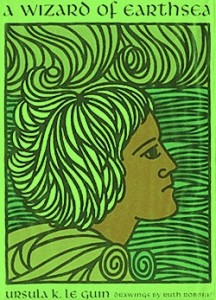 * Spoiler Alert * This week we look at chapters 8, 9, and 10 of Usula K. Le Guin’s A Wizard of Earthsea.
* Spoiler Alert * This week we look at chapters 8, 9, and 10 of Usula K. Le Guin’s A Wizard of Earthsea.
At the conclusion of the novel, we find Ged chasing the shadow through various islands; apparently it has transformed itself into a figure closely resembling Ged himself, as others commented on seeing him cross their lands only days earlier. On his journey, the Sorcerer receives a new boat and the aid of his friend, Vetch, who forsakes his charge as magic-worker of his home island and accompanies Ged on his quest to stop the shadow.
After a perilous voyage into unknown, and landless, waters, Ged finally reaches a mystical shore, where the sea has turned to land, to confront the shadow-being, which is in effect the darker version of himself. The two rejoin, and all is well for Ged, Vetch , and Earthsea.
That was perhaps the most startling aspect to this final chapter. The book just ends; Le Guin built up this heroic and climatic confrontation between Ged and the shadow, only to have the whole novel conclude less than a page after. I will go into more detail in a final wrap-up next week, but that was perhaps the most disappointing aspect to the entire work.
The central conflict is one that resonates throughout society in general: how does humanity, as a race, deal with its darker side? The story is really about Ged overcoming his hubris and ambition to become a great sorcerer. His actions and indecision remind me of an episode of the original Star Trek, The Enemy Within, where Kirk is split into two versions of himself: a “positive” half and an “negative” half. In reality, the positive half is hampered by his lack of ability as it does not possess the drive and determination that are inherent to the more violent negative part. Conversely, the negative Kirk cannot function without the reason and compassion found in the positive. Neither are able to exist without the other.
Ged’s lack of determination to chase the shadow, along with his fears and self-doubt, echo this concept. Only when we can accept the entirety of out nature can we be as strong as we truly are. This can be echoed in Christianity as well. Without acknowledging that we are sinners, and embracing that aspect to our nature, we cannot truly understand ore exist with God’s spirit. Can a person who does not believe they sin truly appreciate the sacrifice that Jesus made for all? Alternately, a person who wholly accepts their sinful nature and believes that good deeds are not necessary to lead a spiritual life because their sins have been absolved through Jesus neglects an important tenet of the Christian faith: to emulate out Lord.
Ged’s power is illustrated in his final conflict as well, and we see how strong he can become by accepting his negative side. When the two finally meet in the open ocean, it turns to sand, and land is made from the sea. This concept was discussed earlier in the book, as the Archmage (I think) told Ged that it is impossible to shape things of which you do not know the name. Here is Ged in an area that he probably has no notion what the name is, and yet to his subconscious will it shapes itself into what he needs it to be. Truly, as we may see in later books, Ged is a powerful magician indeed.
Lastly, I want to apologize for the lateness in this post. I hope this has at least given many of our readers a chance to catch up with the book. Please leave your comments below, or if you are catching up, feel free to go back to previous posts and comment there. All can be found under the tag Read-Along.
Have a wonderful week!
A Wizard of Earthsea Read-Along Part 3
August 29th, 2011* 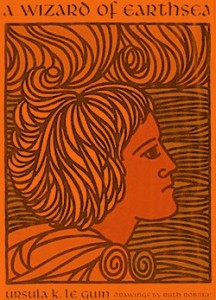 Spoiler Alert * This week we look at chapters 6 and 7 of Ursula K. Le Guin’s A Wizard of Earthsea.
Spoiler Alert * This week we look at chapters 6 and 7 of Ursula K. Le Guin’s A Wizard of Earthsea.
These two chapters encompass the heart of Ged’s journey In the beginning, he is fleeing for his life, searching for some way to fight off the shadow beast while at the same time trying to outrun it. He learns at the end of six that he cannot escape, while tragically the thing knows his name. Once again Ged is stripped of his powers and he flees up a mountainside to a remote castle. Occupied by a witch and a sorcerer, the two have designs to use Ged as a vessel for another great evil. Realizing almost too late, he escapes as a falcon and finds his way to Ogion. His old master convinces Ged that it is useless to run and he must confront the shadow, as Ged is the only one who can defeat it.
I think that this is the first true time, at the finale of this chapter, that Ged acts as a hero. His other choices were made as a reaction to outside stimuli: he sought out the dragon because he needed to flee the islands while ensuring their safety; he searched for a way to defeat the shadow instead of confronting it. Ged has finally learned in seven that he must take action, not simply be guided by the shadow’s trickery.
Ged’s adventure as a falcon greatly intrigued me, as it resonates within all of us as a desire to do what we want instead of what is needed of us. Ged had, as a youth, longed for the days of flying like an eagle. When he performs this feat to escape the stone’s guardians, he almost loses himself in the experience. How often have we known what what we should be doing, but instead do the opposite? And how often do we lose sight of our true purpose because we have allowed ourselves to become distracted? Ged was almost lost to his falcon form just as we are in danger of losing ourselves, either in hubris or panic, until a voice calls to us from beyond ourselves and pulls us back.
Again, thank you for joining me this week, and I look forward to our discussion!

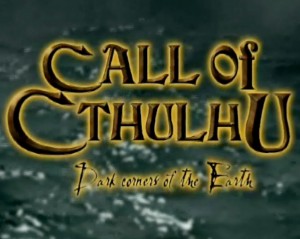
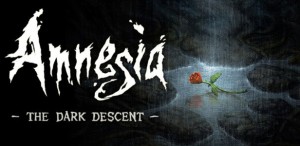
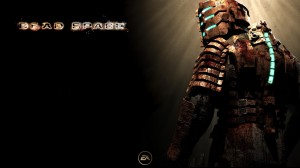

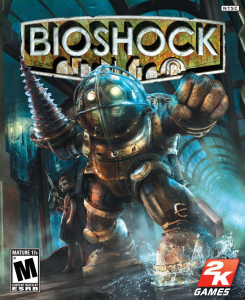
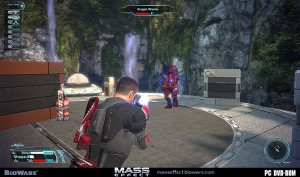
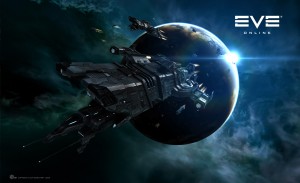

Recent Comments
April 17, 2024
September 11, 2023
July 12, 2023
December 10, 2022
August 23, 2021